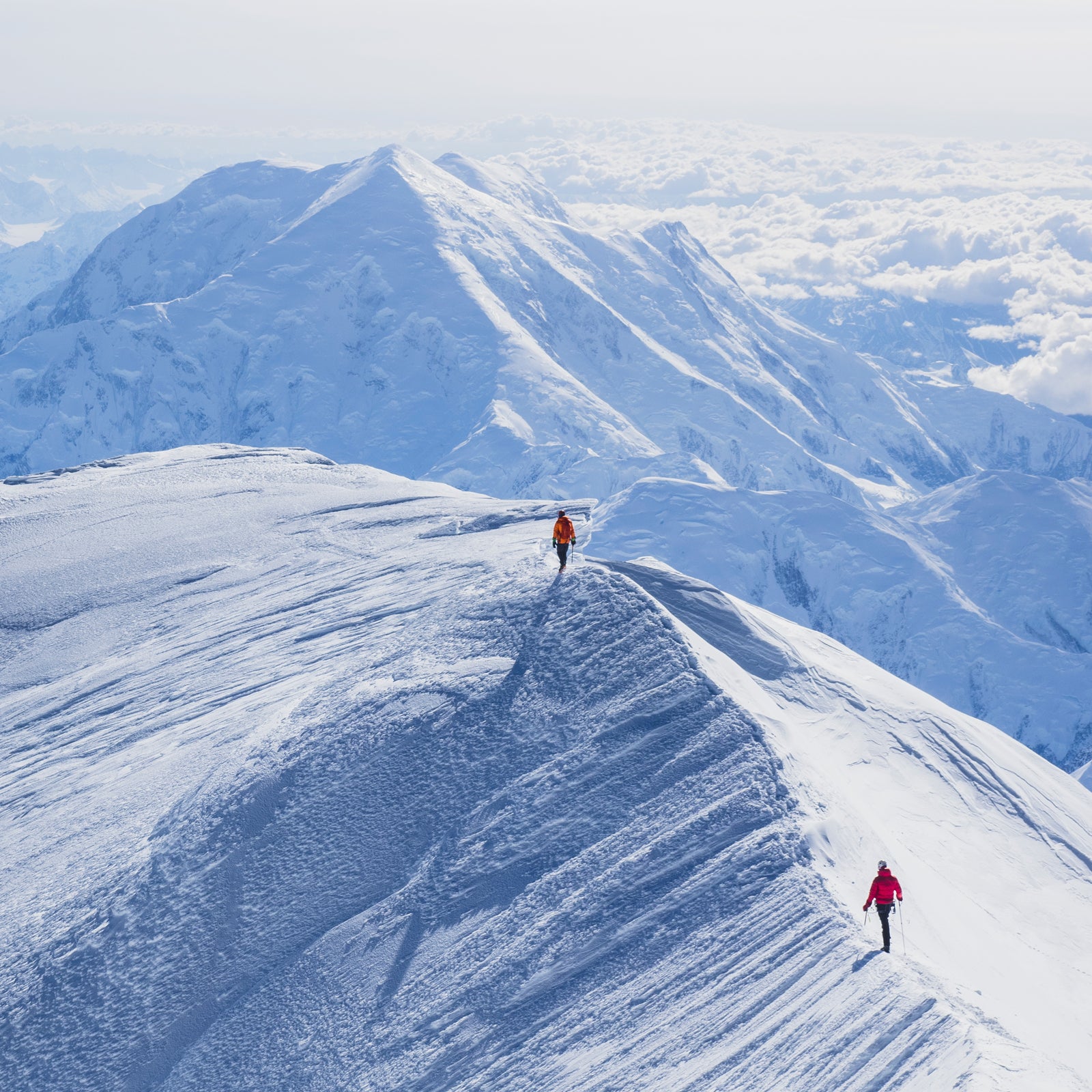In 1925, the eminent physiologist Joseph Barcroft, fresh from a pioneering high-altitude research expedition to heights of Cerro de Pasco in Peru, made a provocative claim. “All dwellers at high altitude,” he wrote, “are persons of impaired physical and mental power.” The accuracy of that statement remains , to put it mildly, nearly a century later. Highlanders in the Andes and Himalayas, whose ancestors have lived above 10,000 feet for thousands of years, beg to differ. But for temporary visitors to the highest places on earth, Barcroft’s claim is self-evident: mountains make you weak and stupid.
It’s not obvious why, though. The obvious culprit for reduced cognitive function is the thin high-altitude air depriving your brain of oxygen. The resulting impairment of judgment and decision-making can have serious and sometimes fatal consequences when you’re choosing routes, scaling cliffs, and assessing weather and snow conditions. But there are lots of other factors beyond the oxygen levels during a typical alpine expedition that might dull your judgment, such as sleep deprivation, dehydration, and simple physical exhaustion from the prolonged effort it took to get there.
, from researchers at Ruhr-University Bochum and the German Sport University Cologne, tries to sort some of this confusion out with an ambitious experiment. They tested cognitive performance in 80 volunteers under one of four different conditions:
- Altitude plus prolonged exercise (during an ascent of Mount Kilimanjaro)
- No altitude plus prolonged exercise (during a seven-day “backcountry ski hiking tour in the high plateaus Setesdal and Sirdalheiane in the south of Norway”)
- Altitude plus no exercise (in an altitude chamber set to 12,500 and 19,000 feet, roughly equivalent to the two elevations where testing was performed on Kilimanjaro)
- No altitude plus no exercise (basically sitting on the couch in sweatpants)
Cognitive function was measured with the , a pattern recognition test that assesses “alertness, focused attention, divided attention, and vigilance.” The researchers chose to focus on “attentional dysfunction” because it’s a form of cognitive impairment that can have particularly disastrous effects on mountain expeditions, where ropes and crevasses and weather demand constant focus. Interpreting the results isn’t entirely straightforward, since the test spits out separate measures of speed, accuracy, and continuity of attention. But there are some telling patterns in the data.
The most unambiguous—and unsurprising—finding is that the Kilimanjaro group had seriously impaired attentional capacity at the summit, though not at the lower 12,500-foot testing point. The altitude chamber group also showed signs of impairment at the 19,000-foot elevation, but nowhere near as pronounced. And the backcountry skiers, who were skiing four to 10 hours a day carrying packs weighing up to 45 pounds then sleeping in huts, showed no decline at all in their cognitive test scores.
It’s important to note that there are many differences between climbing a mountain in Africa, skiing to a hut in Norway, and sitting in a sterile lab in northwestern Germany. It’s possible that the test results were skewed by the effects of travel, or the ambient temperature, or the characteristics of the subjects (since the groups were chosen voluntarily rather than assigned randomly).
But if the general patterns are correct, we can draw two conclusions. First, thin air alone doesn’t fully explain the cognitive deficits observed in mountain climbers, since the Kilimanjaro group fared worse than the altitude chamber group. And second, fatigue from prolonged exercise doesn’t explain the difference, since the ski touring group didn’t show any negative effects. It’s possible that there’s an interaction effect: prolonged exercise only takes a toll when it occurs at high altitude. Or it’s possible that some of the other factors like sleep deprivation and dehydration play a significant role.
That last option would be the best one, from a practical sense. If you’re heading out for a big adventure in the mountains, there’s not a whole lot you can do about either the thin air or the prolonged physical exertion. (Okay, you can take supplemental oxygen, but that’s a pretty niche solution. And you can hire someone to carry all your gear and give you a piggyback ride, but where’s the fun in that?) Sleep and dehydration, on the other hand, are much more modifiable. Neither is easy at high altitudes—but if you make them a priority, there’s potential for improvement.
My new book, , with a foreword by Malcolm Gladwell, is now available. For more, join me on �����Ի���, and sign up for the Sweat Science .


